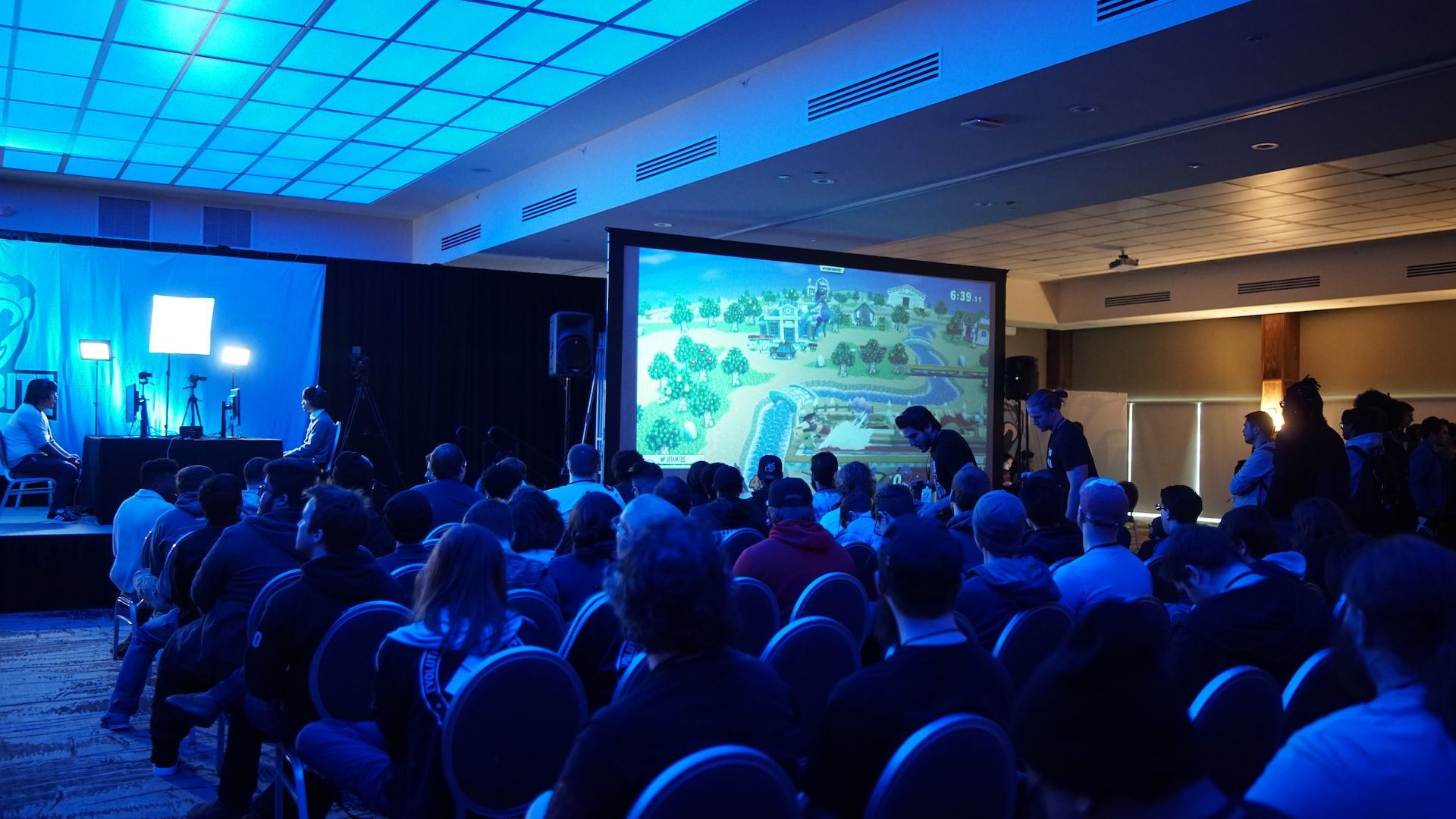With fears over a recession impacting all sectors for much of 2023, many companies have tightened their belts to protect their bottom line. So where does this leave their event programmes? And how should eventprofs and in-house corporate planners plan event programmes around the uncertain landscape ahead?
We’re asking experts about the trends, hurdles, and opportunities they see in the industry this year and beyond. In this article, we’ve asked four event experts about organising strategic events against a backdrop of risk aversion and tighter pockets, from how to make the case for those events, to how to make them stand out and draw new business. Read on for their insights!
The impact of inflation on event costs
We dived into the effect of the cost-of-living crisis on events back in November, hearing from those with their fingers on the pulse of the industry what changes they expected to see happening as inflation took hold. Now, almost 9 months on, what impacts has the industry experienced?
Firstly, inflation has continued to push up prices in supply chains, making budgeting for events an increasingly difficult process. Insights from the Meetings Industry Association suggested that three quarters of suppliers have had to increase their prices, which has had an inevitable knock-on effect on event budgets.
According to Sarah Zarywacz, an in-house corporate event planner, this has been felt keenly by businesses planning events: “some event costs have gone up massively - sometimes by as much as 40%.” This is a dramatic rise, but is lower than predictions from late 2022, where figures suggested that the rise in operating costs would be up to 83%.
And supply chains are more unstable
However, additional difficulties lie in actually sourcing the contractors and materials for events, as cost hikes have led to hiring freezes and difficulties in keeping supply chains strong. As Carina Bauer, CEO of IMEX told Hire Space, inflation is “impacting events primarily in the form of supply shortages”, which means that lead times are having to be extended and alternative suppliers found.
In fact, a common theme seems to be that regardless of how much money companies are willing to pay, there are major hurdles in procurement, with a residual lack of trained staff after the pandemic. “Venues and suppliers have reduced teams - turnaround isn’t as quick as it used to be and this can make it more difficult to plan and deliver events efficiently,” Sarah told Hire Space. Add to this the need to make budgets stretch as far as possible, and the events industry has a pinch point facing us.
Outsourcing procurement
Sourcing and securing suppliers is taking up more time than ever before, which puts a further strain on event planners. If you're facing difficulties in this area, get in touch to find out how our Hire Space 360 enterprise solution can streamline the process and support on your event delivery.

The events landscape is changing, and so are event formats
Despite a steep rise in costs, “demand continues to be very high for face-to-face and business events, post-pandemic,” Carina told Hire Space. But numbers aren't quite what they were in 2019 yet, and companies are having to work harder to make the returns on their event investments. To reflect this, there are noticeable changes to how events are run, from their formats, to their location, and to the emphasis placed on event experience.
According to Carina, even before inflation fully took off “the structure of events was changing anyway post-pandemic” with formats like the hub-and-spoke model or ‘roadshow’ events becoming more popular. This was largely due to uncertainty around travel restrictions, but we’ve seen it come with a whole host of other benefits, from making events more sustainable due to lower numbers of flights being required, to more meaningful connections at events, thanks to the more intimate nature of them.
With attendee pockets also feeling the pinch, companies have to be strategic with the events they produce, to make sure they make it as easy as possible for people to attend. This applies to both the location and format of the events, and to the experience given to attendees. Travel costs have also increased, pushing more businesses to consider more localised or hybrid events. While they may require more budget to be done well, hybrid events allow more diverse audiences to interact with your brand, and may attract more business leads in the long run.
Making the most of hybrid events
Hybrid events can be a valuable tool in your arsenal, but knowing how to get the most from them is essential. Check out our complete guide to hybrid events to get to grips with this event format.

Key advice for event planners
There's a huge amount that we can learn from each other in the events industry, particularly as the economic landscape evolves. Here are some key tips our contributors highlighted.
Zero in on targeting the right attendees
One key area to focus on is on narrowing in on the target audience for your event. Sarah highlights the need to target personas better, so that events bring in the strongest, most engaged audience possible. "Look at drop-out rates for events to understand audience behaviour better, and to identify where [your events] are falling down and missing opportunities to target the right people.”
This might be moving from large networking events to smaller, more focused roundtables, keynotes, or receptions where clients receive more of a personal experience. It may also involve separating those different target personas to provider more valuable opportunities for connections, as Sarah suggests - for instance by levels of seniority or by specific departments. This may come with an initial cost trade-off but have significant returns in the long run.
Invest in experience to keep demand high
After a long period of being separated, people are keen to interact, but it’s essential to keep in mind that as much as events are an investment of a company’s money, they’re also an investment of attendees’ time. “Individuals are having to be more selective about where they go," says Jenny Jensen, Head of Business Tourism, Marketing Liverpool. "There's an onus on the event organiser to create a compelling program, to choose a destination that people really want to go to and a venue that ticks all the boxes.”
In a world of increasing competition for attendance, it’s essential that corners aren’t cut when there’s a reason for spending more. “Sometimes you can pinch in the wrong places and demotivate people, and I think we just have to be aware of having to square up the investment against the positive experience of your attendees,” Carina told us.
Experience is a key driver for more people choosing to attend events this year than 2019, and lower budgets risk missing the mark with attendees. As Sarah says: “It’s about showing your clients what the current budget will get, and making a case for increasing the budget to see higher engagement, returns, and success.” Check out our guide to maximising the experiential potential of your event for our full guidance.

Extend the lifetime of every event
Event strategies should be focused on getting the most returns from an investment, and it's essential not to lose sight of how the event will work as part of your marketing strategy. Every event should have brand development at its core, which comes from making sure that your event nails the experiential imperative to keep audiences loyal and engaged. This starts from the online user experience: registration, marketing, socials, apps, and tech are all key to getting people in, says Sarah.
Check out our complete guide to leveraging your event content for more guidance and advice on maximising the value of your events.
Work with others to maximise time and resource
Delegating is key, particularly with stretched teams and more pinched resources this year. Events are more efficient when people are filling the roles they do best, as Sarah puts it, which means turning to experts in the field you need help in, to outsource these areas, from venue platforms like Hire Space, to convention bureaus of cities you’ll be basing events in, as Jenny advises.
Carina agrees, adding that it’s worth working with agencies and marketplaces to tap into the preferential deals they can access around event venues and hotel rates. With hotel prices rising by up to 8.2% this year, this could make a big difference to how far budgets can stretch.
On this note, networks are an event planner’s greatest tool: “Build, nurture, and love your network,” says Sarah: “Collaboration will help us to thrive - people with good networks will get things for better prices, at shorter notice.” She also advises streamlining your communication with suppliers to save time and make life easier for everyone, by providing as much detail as possible in enquiries.
Let us help:
We know that keeping track of multiple suppliers and contractors can be a headache. That's why Hire Space 360 provides a one-stop onboarding and contracting service for all suppliers, so you don't have to worry about the admin. We also source everything from caterers to AV suppliers from our database of trusted industry suppliers. Get in touch to find out more about how we can help to support your team's resource.

How are other current issues affecting event strategy in 2023 and beyond?
Stemmed cash flow isn’t the only problem affecting events currently. As Pádraic Gilligan, CMO, SITE Global succinctly summed it up: “The key challenges facing corporate event planners can probably be summarised by 4 words, all beginning with C – conflict, climate change, cash and Covid.” From the conflict in Ukraine “pushing adjacent, new and emerging destinations out of the consideration set” to Covid still exerting a lingering wariness on event planners, there are plenty of considerations which play a part in event strategy, he told Hire Space.
This is particularly evident in figures that suggest that people are playing it safer and keeping their events closer to home this year. Pádraic states that “a key factor influencing closer-to-home destination choice for incentive travel professionals is a residual pandemic hangover, the fear of being too far from home in the event of global crisis.”
With tighter budgets and closer scrutiny on CSR and sustainability, travel for events will also have to be justified, which may lead to more hybrid models or local events. But this doesn’t necessarily mean we’ll see fewer events, or that companies will stop staging international events altogether: “ultimately if corporates see that their competitors are in person with clients, they're still going to travel because they want to keep that competitive advantage,” says Carina. One way to work this into your strategy is through having more events packaged into one to make the trip more cost- and carbon-efficient - for instance, combining a company update with a public conference or product launch.

Explore event trends and strategy in 2023
With an uncertain economic landscape ahead, it’s more critical than ever that eventprofs thoroughly understand the market and how to maximise the value of events. Sign up to stay in the loop with industry updates, emerging trends, and tips from thought-leaders in events, to stay one step ahead.
Sign up for our mailing list
Keep your finger on the pulse of the industry, with updates and news, upcoming events, and tips from experts, straight to your inbox.
Sign me up!
About the speakers
Carina Bauer, CEO, IMEX Group
A passionate and dedicated leader, Carina Bauer is the CEO of the IMEX Group – an organisation responsible for organising the leading global trade shows for the international business events industry. Carina is passionate about the business events sector and its impact on the world, taking a particular interest in issues around sustainability, diversity and inclusion and mentoring the leaders of tomorrow. Carina also takes a keen interest in leadership development and organisational best practice.
Pádraic Gilligan, Chief Marketing Officer, SITE Global
Pádraic has over 20 years of leadership experience both nationally and internationally in the Business Tourism sectors, growing and managing companies and business units. Over the past 30 years he has served in a wide variety of leadership roles including Managing Director at Ovation Group, Global Vice President at MCI, Chairman of various pan-industry committees at Bord Failte / Tourism Ireland and International President of the association SITE.
Jenny Jensen, Head of Business Tourism, Marketing Liverpool
Jennifer Jensen has twenty years of experience within the Meetings Industry, from working on European business development for London and Partners, to Association and Corporate Sales at ACC Liverpool. In her current role as Head of Business Tourism at Marketing Liverpool, a post she has held for almost seven years, she has responsibility for the strategic direction of business tourism in Liverpool and is an instigator of change and growth for the destination, overseeing the successful Club Liverpool ambassador programme and driving improvement in sustainability and legacy for the destination.
Sarah Zarywacz, Corporate Event Planner
Sarah is a corporate event professional and marketer, currently working in finance for a UK leading mid-market private equity house, ECI Partners. At ECI, Sarah leads the event strategy and programme implementation for the investor, advisor and portfolio community alongside other marketing activities. Recognised in the CN 30underThirty Class of 2021, The Meetings Show’s Tomorrow’s Talent 2022 and WATC’s Rising Star Shortlist 2022, Sarah is passionate about driving ESG up the agenda to accelerate industry progression and innovation.
Author

Jessamy Cowie
Jessamy channels her passion for sustainability and cultural events into shining a spotlight on innovation and inspiration in the events world, and heading up Hire Space's sustainability committee.


